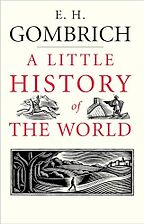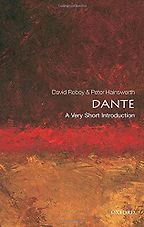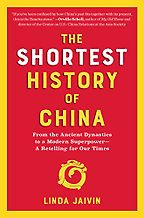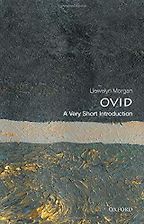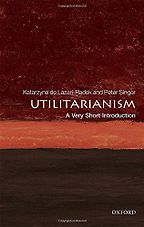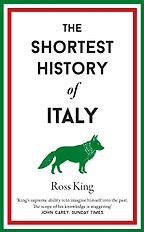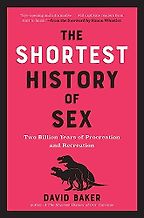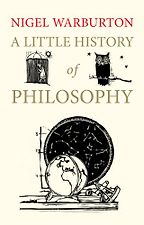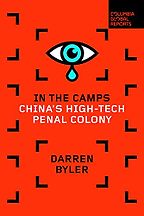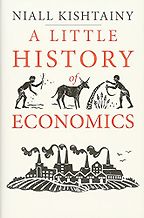Nonfiction Book Series
Last updated: September 29, 2024
One of the best ways to be introduced to a subject is to read an expert—who really knows their stuff—writing about it for beginners. These days there are a number of nonfiction book series that aim to do exactly that: they get leading thinkers to write up their knowledge in such a way that anyone could understand it. As a reader, that introduction is then a great springboard to find out more. Below, we've listed a selection of books from some of our favourite series.
A Little History series | The Shortest History of... | Very Short Introductions | Columbia Global Reports
A Little History of the World
by E.H. Gombrich
The first book in the Little History series, published by Yale University Press
A Little History of the World by E.H. Gombrich is a charming account of the whole of world history in under 300 pages. Gombrich was from Vienna, and the book was first published in German in 1936. It was written with young adults in mind, and the book aims not just to recount key events, but also to infect the reader with excitement about history, and why it's relevant. (The last chapter, about the rise of anti-Semitism in Europe in the 1930s—which Gombrich himself experienced—is quite upsetting to read today, as populist politicians again find scapegoats to blame problems on).
Dante: A Very Short Introduction
by David Robey & Peter Hainsworth
Part of the Very Short Introductions series
Dante: A Very Short Introduction by David Robey and Peter Hainsworth is a fantastic introduction to the work of the Italian poet, Dante Alighieri (1265-1321). The book is essential reading before embarking on Dante's great work, the Divine Comedy, as a lot depends on understanding the context of the poem and of the man who wrote it.
“It’s about 250 pages, which for several thousand years of history is not bad. Jaivin’s a very talented writer, who knows China well, and from a variety of vantage points…The most challenging thing for a book like this is to do justice to both continuities and ruptures. She doesn’t fall into the trap of an ‘unchanging China’ idea. One nice visual touch is that most chapters have a map. It’s a map of what now comes into our mind when we hear the word China, and she shows how much or how little—and it’s often very little—of that physical space was actually controlled by the dynasty in power at the time” Read more...
Jeffrey Wasserstrom, Historian
Ovid: A Very Short Introduction
by Llewelyn Morgan
🏆 A Five Books Book of the Year
Part of the Very Short Introductions series
“This one is a really loving account of Ovid, with a very simple structure. It just takes you through his major works, with the Metamorphoses obviously at the centre. It’s also, to a certain extent, a meditation on exile. Ovid is one of the great figures of exile. It’s very good on that perspective. It’s a wonderful little book. I can’t think of a better introduction to the work of this figure who is, arguably, the single most influential poet of antiquity.” Read more...
The Best History Books of 2020
Paul Lay, Historian
Utilitarianism: A Very Short Introduction
by Katarzyna de Lazari-Radek & Peter Singer
🏆 A Five Books Book of the Year
Part of the Very Short Introductions series
“This book is quite brilliantly done. It’s a very concise book, but it’s intelligible and precise in the way it describes the varieties of utilitarianism. It’s very readable and it covers a lot of ground. It covers what you would cover in a university undergraduate course on utilitarianism, but you can read and take it in in four or five hours or so. Because Peter Singer is a co-author, it has a certain authority in its description of thinkers and positions. It’s got a bias, obviously, because it’s written by people who are extremely sympathetic to utilitarianism.” Read more...
The Best Philosophy Books of 2017
Nigel Warburton, Philosopher
“If you like Italy and history, one book that’s a lot of fun is The Shortest History of Italy, by Ross King, author of Brunelleschi’s Dome. In 234 pages, it covers the entire history from Aeneas’s mythical arrival and the founding of Rome to the present. It’s really satisfying to have Italy’s history told as a whole rather than the Roman Empire/Renaissance/Risorgimento etc. as separate history books.” Read more...
Notable Nonfiction Books of Mid-2024
Sophie Roell, Journalist
“David Baker, whose field is ‘big history’, takes on The Shortest History of Sex, starting with the Big Bang. This is really a fascinating science book, a tale of the entire history (and a bit of the future) of humanity told through the lens of sex. Like On The Origin of Species, each chapter begins with a little summary of the main topics covered. If you’re on the prudish side (I’m afraid I am) the jokes can be a little jarring but given the subject matter, I can understand the author’s decision to go for it.” Read more...
Nonfiction Books to Look Out for in Early 2024
Sophie Roell, Journalist
A Little History of Philosophy
by Nigel Warburton
Part of the Little History series, published by Yale University Press
It may be true of all subjects, but it's particularly true of philosophy that it's hard to understand any of it until you know quite a lot about it. Even a book for teenagers, like the 1995 bestseller Sophie's World, is extremely hard to follow if you really are a beginner. What's nice about Nigel Warburton's A Little History of Philosophy is that, as the title suggests, it takes a historical approach. That makes it a lot easier to follow what's going on. It has short chapters on all the big names in Western philosophy—and their basic ideas—over the past two millennia, from Socrates and Plato through to Peter Singer, the Australian utilitarian philosopher who only just retired from Princeton University.
A Little History of Philosophy is also very nice to listen to as an audiobook. By the end you'll know your Kant from your Kierkegaard, your Spinoza from your Schopenhauer and your Aristotle from your Arendt—all in just 7.5 hours of listening!
“What’s important about In the Camps is that there hasn’t been a short, deeply informed book about Xinjiang that you could point somebody to who says, ‘I don’t have a lot of time to devote to this subject, but I want to go deeper than I can even through a long-form journalism piece’…In the Camps is designed to give a feel for the human experience of having the ground pulled out from under you in every conceivable way. Forms of movement become constrained, everything you’re doing is watched. People are disappearing into camps, but also going silent because of fear of being targeted. It’s an incredibly important story.” Read more...
Jeffrey Wasserstrom, Historian
A Little History of Economics
by Niall Kishtainy
Part of the Little History series, published by Yale University Press
"It doesn’t presume any knowledge. Most adults don’t know anything about economics and find it a daunting field to get into, so they find it a really useful book to read. It’s completely free of jargon and free of any assumption that people will know anything about the topic. That was the idea of the book—and obviously to put it in a historical context. There are a lot of introductory economics books, but most of them don’t take a historical approach."
